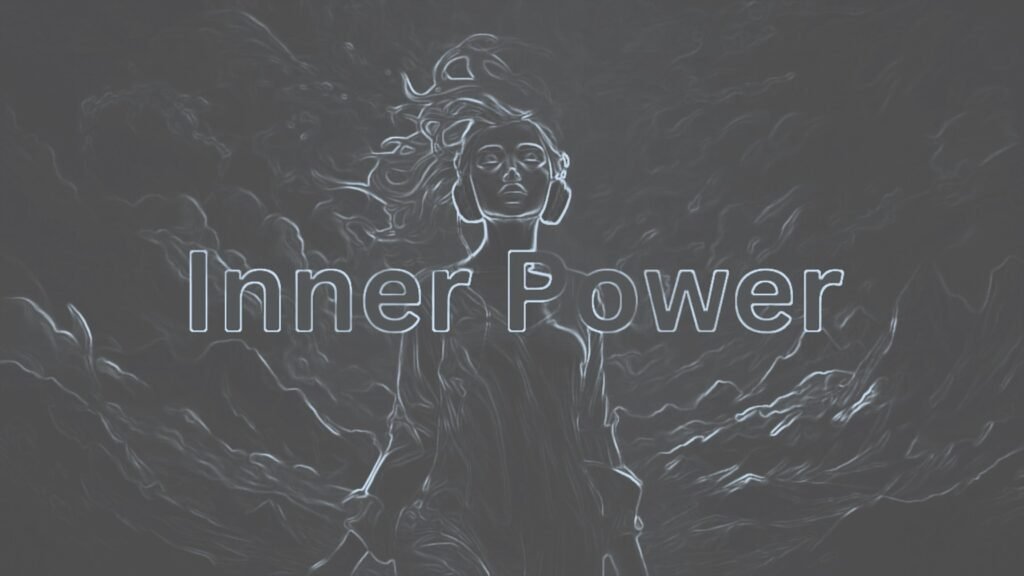Have you ever found yourself in a constant battle with your thoughts, doubts, and fears? This internal struggle, often referred to as a fight with your inner consciousness, can be a significant barrier to personal growth and self-improvement. Your inner consciousness is the voice within that reflects your deepest beliefs, emotions, and judgments. It can either propel you forward or hold you back, depending on how well you manage it.
In this comprehensive guide, we will delve into the concept of inner consciousness, explore why it’s crucial to master this internal dialogue, and provide practical strategies to help you win this fight. By the end of this post, you’ll have the tools to harness your inner consciousness for positive change, leading to greater self-awareness, mental clarity, and personal growth.
Understanding Your Inner Consciousness

What is Inner Consciousness?
Inner consciousness is the state of being aware of and reflecting on your thoughts, emotions, and experiences. It’s the inner voice that comments on your actions, judges your decisions, and shapes your self-perception. This voice can be nurturing, guiding you toward growth and self-improvement, or it can be critical, undermining your confidence and leading to self-doubt.
Your inner consciousness is shaped by various factors, including your upbringing, experiences, beliefs, and societal influences. It plays a crucial role in how you perceive yourself and the world around you.
Why is Inner Consciousness Important?
Your inner consciousness is the foundation of your mental and emotional well-being. It influences your decision-making, relationships, and overall quality of life. When your inner consciousness is balanced and positive, it can:
- Boost Self-Esteem: A supportive inner voice fosters confidence and a healthy self-image.
- Enhance Decision-Making: Clarity of thought and self-awareness lead to better choices.
- Promote Emotional Resilience: A positive inner dialogue helps you navigate challenges with grace and perseverance.
On the other hand, a negative or overly critical inner consciousness can lead to:
- Self-Doubt and Anxiety: Constant self-criticism erodes confidence and fuels anxiety.
- Procrastination and Inaction: Fear of failure or judgment can paralyze your ability to take action.
- Emotional Turmoil: Negative inner dialogues can exacerbate feelings of stress, depression, and emotional instability.
The Fight with Your Inner Consciousness: Why It Matters
The Nature of the Internal Battle
The fight with your inner consciousness is an ongoing process. It’s the clash between your aspirations and your fears, your desires and your doubts. This internal struggle can manifest in various ways, such as:
- Self-Criticism: Harsh judgment of your abilities and actions.
- Self-Sabotage: Unconsciously undermining your own efforts to succeed.
- Indecision: Paralysis caused by overthinking and fear of making the wrong choice.
Understanding this internal battle is the first step toward mastering it. Recognizing the patterns of negative self-talk and self-doubt allows you to address them head-on.
The Cost of Losing the Battle
Failing to manage your inner consciousness can have profound implications on your life. It can lead to:
- Stunted Personal Growth: Unchecked self-doubt can prevent you from pursuing opportunities for development.
- Deteriorating Mental Health: Persistent negative thinking can contribute to anxiety, depression, and other mental health issues.
- Strained Relationships: A negative inner consciousness can spill over into your interactions with others, causing misunderstandings and conflicts.
On the flip side, mastering this battle can unlock your full potential, leading to a more fulfilling and successful life.
How to Master the Fight with Your Inner Consciousness
1. Cultivate Self-Awareness
Self-awareness is the cornerstone of mastering your inner consciousness. It involves being mindful of your thoughts, emotions, and behaviors and understanding how they influence your life. Here’s how you can develop greater self-awareness:
- Mindfulness Meditation: Practice mindfulness to stay present and observe your thoughts without judgment.
- Journaling: Write down your thoughts and feelings to gain clarity and insight into your inner world.
- Seek Feedback: Engage in open conversations with trusted friends or mentors to gain an external perspective on your behavior and attitudes.
By cultivating self-awareness, you’ll be better equipped to recognize negative thought patterns and take proactive steps to change them.
2. Challenge Negative Thoughts
Negative thoughts are often the root cause of inner conflict. To master your inner consciousness, you must learn to challenge and reframe these thoughts. Here’s how:
- Identify Cognitive Distortions: Recognize common cognitive distortions like black-and-white thinking, catastrophizing, and overgeneralization.
- Question the Evidence: Ask yourself if there’s factual evidence to support your negative thoughts. Often, these thoughts are based on assumptions rather than reality.
- Reframe the Narrative: Replace negative thoughts with more balanced, positive alternatives. For example, instead of thinking, “I always fail,” reframe it as, “I’ve faced challenges, but I’ve also achieved success.”
Challenging negative thoughts helps break the cycle of self-criticism and promotes a more constructive inner dialogue.
3. Practice Positive Affirmations
Positive affirmations are powerful tools for reshaping your inner consciousness. They help reinforce a positive self-image and counteract negative self-talk. Here’s how to use affirmations effectively:
- Create Personalized Affirmations: Craft affirmations that resonate with your goals and values. For example, “I am capable and deserving of success.”
- Repeat Daily: Integrate affirmations into your daily routine, repeating them each morning or before challenging tasks.
- Visualize Success: As you recite affirmations, visualize yourself achieving your goals and living your best life.
Consistent practice of positive affirmations can gradually shift your inner consciousness toward a more supportive and empowering mindset.
4. Set Boundaries with Your Inner Critic
Your inner critic is a significant part of your inner consciousness that can either motivate you or hold you back. Setting boundaries with your inner critic involves recognizing when it’s constructive and when it’s destructive. Here’s how to manage your inner critic:
- Acknowledge Its Presence: Recognize when your inner critic is speaking and understand that it’s only one part of your consciousness.
- Set Limits: Allow your inner critic to express concerns but set boundaries by limiting its influence. For example, decide that after considering constructive criticism, you’ll focus on positive action.
- Engage in Self-Compassion: Treat yourself with the same kindness and understanding you would offer a friend. Remind yourself that it’s okay to make mistakes and that growth is a process.
By setting boundaries with your inner critic, you create space for a more balanced and compassionate inner dialogue.
5. Embrace Growth Mindset
A growth mindset is the belief that your abilities and intelligence can be developed through effort, learning, and perseverance. Embracing a growth mindset is crucial in the fight with your inner consciousness because it encourages you to see challenges as opportunities rather than threats. Here’s how to foster a growth mindset:
- View Challenges as Learning Opportunities: Instead of fearing failure, approach challenges with curiosity and a desire to learn.
- Celebrate Progress: Focus on the progress you’ve made rather than fixating on the end goal. Recognize that growth is a journey.
- Learn from Criticism: See constructive criticism as valuable feedback for improvement, not as a personal attack.
Adopting a growth mindset helps you stay resilient in the face of adversity and keeps your inner consciousness aligned with your goals.
6. Develop Emotional Resilience
Emotional resilience is the ability to cope with stress and adversity while maintaining a positive outlook. Strengthening your emotional resilience is key to mastering your inner consciousness. Here’s how to build emotional resilience:
- Practice Stress Management Techniques: Engage in activities like deep breathing, exercise, or creative hobbies to manage stress effectively.
- Build a Support System: Surround yourself with supportive friends, family, or mentors who can provide encouragement and perspective.
- Focus on Solutions: When faced with challenges, shift your focus from the problem to potential solutions. This proactive approach helps reduce anxiety and fosters a sense of control.
By developing emotional resilience, you can better navigate the ups and downs of life, keeping your inner consciousness balanced and focused.
Conclusion
Mastering the fight with your inner consciousness is a lifelong journey, but it’s one that offers immense rewards. By cultivating self-awareness, challenging negative thoughts, practicing positive affirmations, setting boundaries with your inner critic, embracing a growth mindset, and developing emotional resilience, you can transform your inner consciousness into a powerful ally for self-improvement and personal growth.
Remember, the key to success in this battle lies in consistency and patience. It’s not about silencing your inner consciousness but learning to navigate it with grace and wisdom. As you continue to practice these strategies, you’ll find that your inner dialogue becomes more supportive, empowering you to achieve your goals and live a fulfilling life.




